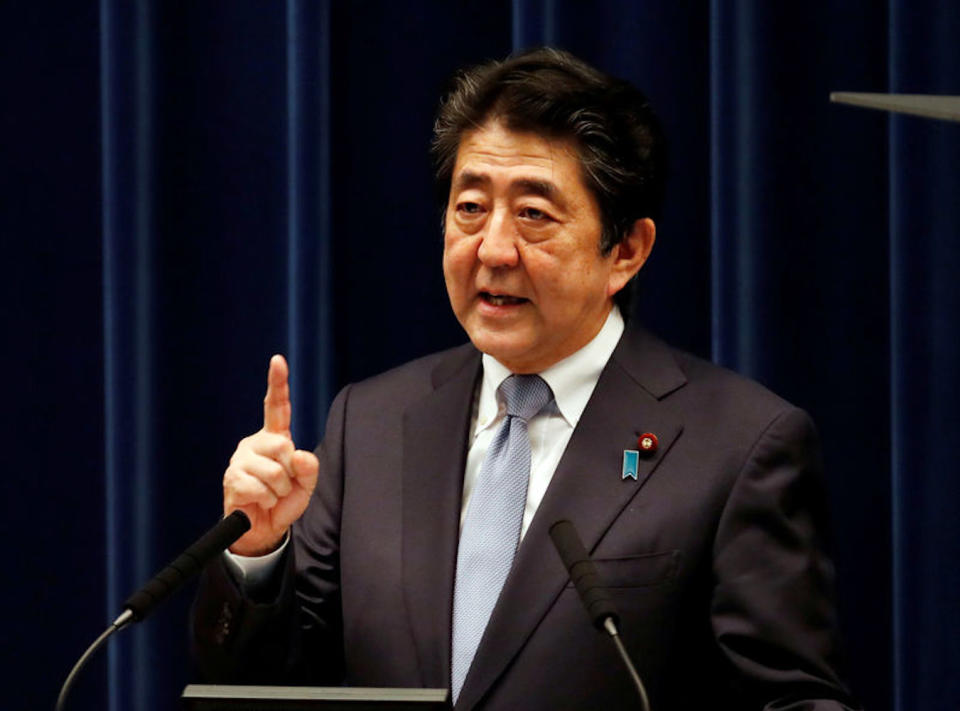Amid its US trade focus, Britain is forgetting about its powerful investor—Japan

Everyone is preparing for a no-deal Brexit. France is making contingency plans for the UK crashing out of the European Union without a deal after Britain released a flurry of technical notices about how the situation would hit all sectors in the nation. The EU has already released its own reports.
The UK’s most powerful people are also warning Brits that a no-deal Brexit is a distinct possibility and prime minister Theresa May is trying to play down the risky scenario by saying “wouldn’t be the end of the world.” But this is perhaps due to her government’s belief that especially in a no-deal Brexit, the UK would be able to forge ahead and seal bilateral trade deals with any country it chooses— namely with the biggest economy in the world, the US.
But amid it’s focus on the US, the UK is forgetting about one of its biggest, and most vocal, investors— Japan. The UK imports around $13.7bn (£10.6bn) in goods a year from Japan.
In 2016, Japan’s Ministry of Foreign Affairs released a 15-page document, detailing how Britain’s economy will be severely damaged if it leaves the EU’s single market—something that would happen in the event of a no-deal Brexit—and said it would have a natural knock-on effect on investors that have close trade ties with the UK. This was made even more explicit when it pointed out in the note that Britain’s success in attracting Japanese investment is derived from its membership within the bloc.
However, two years after that document was published, Japanese investors are becoming increasingly frustrated about how Britain is drifting further away from a deal with the EU and the likelihood of staying within the single market, even more distant.
In the Financial Times on 28 August, the head of Japan’s most powerful business lobby group, which represents the likes of Toyota (TM), Honda (HMC), and Nissan (NSANF), said companies are fed up with the lack of clarity
“We just can’t do anything. Everyone is seriously concerned,” said Hiroaki Nakanishi, chairman of Keidanren, the Japan Business Federation. “Various scenarios get discussed, from no Brexit to plunging into Brexit without any kind of deal at all. We’re now in a situation where we have to consider what to do in all of them.”
He added that it is even more confusing because “when you talk to the UK government, they say something a bit different depending on who is speaking.”
“Please keep the current economic environment as much as possible, including the customs union. If you don’t then it will clearly hinder economic activity in the UK,” he added.
Japan’s warnings
This isn’t the first time Japanese officials have warned since the document was released in 2016 that this lack of clarity means Japanese investors have to thoroughly assess what they’re going to do about the 1,000 companies in the UK that employ 140,000 people. In February this year, Japan’s ambassador to the UK, Koji Tsuruoka, said: “If there is no profitability of continuing operations in the UK—not Japanese only—no private company can continue operations. So it is as simple as that.”
He also added later in June this year that while car maker Nissan wouldn’t abandon Britain, it will have to make difficult investment decisions in the face of Brexit uncertainty.
“They are not thinking of leaving or deserting something they have been working on for 40-years plus,” he said. “There will be difficulty … No manufacturing company I know … has expended their capacity since Brexit because the uncertainty is there.”
Japanese companies are already moving business out of Britain.
In 2017, Japan’s biggest bank, Mitsubishi UFJ, announced it is relocating its UK investment-banking operations from London to Amsterdam, even though it maintains that Britain’s capital city will still be it’s EMEA HQ. Meanwhile both Nomura (NMR) and Daiwa have chosen Frankfurt, Germany as its new EU base.

 Yahoo Finance
Yahoo Finance 
